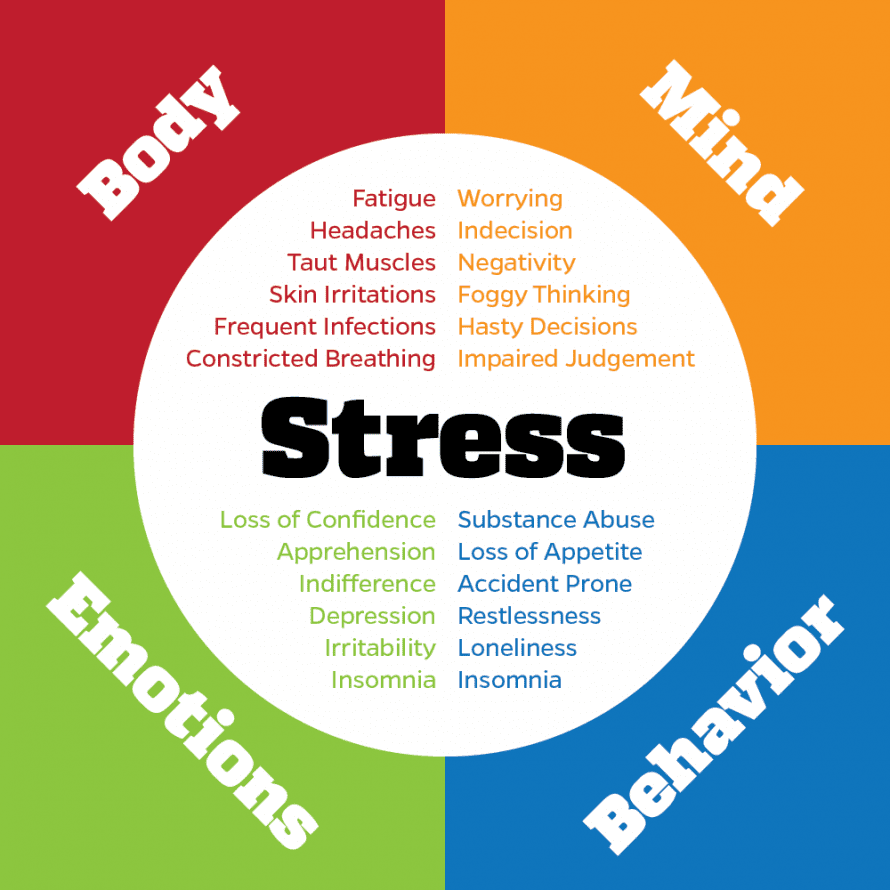24 April 2020
By Von Corner, Development Manager, FirstPort
How are you feeling today? Happy? Sad? Stressed?
I want to talk to you about stress, how it makes us feel and how it can impact our lives.
Don’t get me wrong, low level stress is a good thing. It’s what makes us perform well. A little bit of positive pressure to achieve our goals makes the attainment worth-while, leaving a feeling of accomplishment and self-satisfaction.
But we need to be more aware of how stress can adversely affect our work, our relationships and our quality of life. If we don’t have that insight then high levels of stress can go on to impact other parts of our health.
Looking out for the symptoms
According to the NHS, ‘Stress is the feeling of being under too much mental or emotional pressure… pressure turns into stress when you feel unable to cope’.
The table below gives an overview of how stress can impact on different areas of your physical and mental health and the accompanying symptoms:

As you can see from the table, stress really can have a devastating impact on your quality of life in the long term if it’s not addressed in the short term.
Coping with stress
When stress gets to a point where we can’t cope, we can turn to unhelpful or unhealthy coping strategies, such as smoking, excess alcohol, over-eating or not eating at all. People can pick at their skin, eyes, or self-harm. There can be a sense of inner restlessness and not being able to sit still or concentrate. In extreme cases, people can have suicidal thoughts. If you have experienced suicidal thoughts, then please get in touch with your GP practice who will be able to refer you to the right service.
If we get to know ourselves better, then we can be more in tune with how we feel, what makes us feel that way, and how to deal with it either using good self-care or accessing support networks.
Try out the YouTube videos below and see what you think. Go for a walk or take a warm bath with relaxing music. Pick up the telephone and talk or meet up with friends. Sometimes, just picking up the phone and off-loading when we are feeling a little overwhelmed is all it takes. Just please remember that you’re NEVER alone.
Useful tip: Keep a diary
If you’re not sure what’s causing your stress, keep a diary and make a note of stressful episodes for two-to-four weeks. Then review it to spot the triggers. Things you might want to write down include:
- The date, time and place of a stressful episode
- What you were doing
- Who you were with
- How you felt emotionally
- What you were thinking
- What you started doing
- How you felt physically
- A stress rating (0-10 where 10 is the most stressed you could ever feel)
Useful resources
NHS YouTube Channel:
Breathing techniques
Stretching techniques
Relaxation session
Samaritans
Call 116 123 for free 24/7 or email jo@samaritans.org



